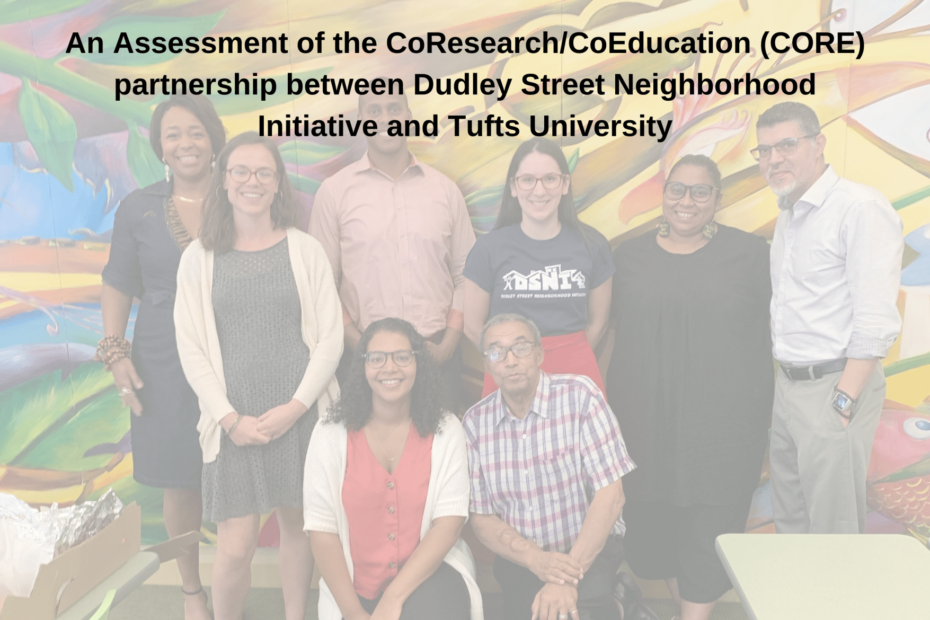This post was originally published on UEP professor Penn Loh’s personal Practical Visionaries blog. Read the original article, posted on February 12, 2021, here. You can also read more about CORE in our recent guest post by Zoë Ackerman, summarizing her analysis of this program, here.
A report assessing the Co-Research/Co-Education (CORE) partnership between Tufts UEP and Dudley Street Neighborhood Initiative (DSNI) is now finalized! In the report, lead author and UEP alumni, Zoë Ackerman, highlights CORE’s accomplishments and contributions with a focus on how CORE has impacted the community. This partnership is built on a 30-year collaboration between DSNI and UEP. This report (and the partnership itself) was generously supported by the Tisch College of Civic Life at Tufts.
Here are some of the notable findings in the report:
- CORE strives for a new standard of reciprocity in community-university partnerships. The program takes on the challenge of working around an academic, semester-by-semester schedule by sustaining partnerships with community organizations over a span of three to five years, integrating teaching, research, and practice.
- Of critical importance to the partnership is the co-creation of shared goals and values, knowledge and action, built on relationships of trust and transparency.
- CORE has become DSNI’s “research arm” and is helping DSNI develop its capacity. CORE has helped cultivate a deeper bench of leadership at DSNI, with three UEP students being hired as staff at DSNI and two DSNI staff entering UEP’s mid-career MPP program in recent years.
- CORE has contributed to the launch of the Greater Boston Community Land Trust Network, the development of a land trust operations manual for DSNI, and supporting DSNI’s co-facilitation with City of Boston of a process to develop an arts and innovation district in the neighborhood.
- CORE has also helped UEP develop its curriculum through courses that are open to community residents, such as Teaching Democracy (a popular education train-the-trainers program) and UEP’s Community Practicum, which has been co-designed with DSNI.
- It has also expanded resources for the community partner. Tufts’ commitment to multi-year funding has allowed DSNI to plan ahead. UEP and DSNI won a a multi-year federal community action grant to further expand its collaborative work.
The symbiotic partnership between DSNI and Tufts University took years to cultivate; but with commitment and compassion, it is a breeding ground for meaningful, fruitful work in supporting community-driven planning. The report provides insight on how universities can work with community organizations in a democratic way. Cultivating community-university partnerships is an opportunity for universities to strengthen their racial justice, and anti-oppressive practices by creating a space to learn from community leaders and understand the ways to support their movements.
Click below to download the full report.
